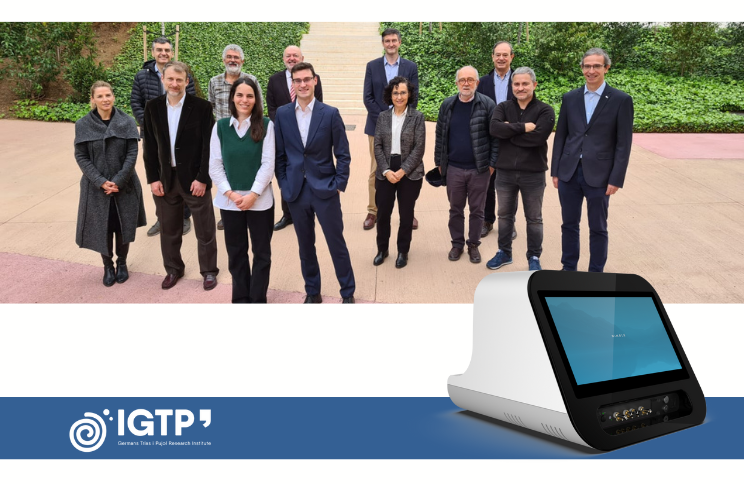Nimble Diagnostics closes a financing round of one million euros

NIMBLE Diagnostics, a spin-off from the Germans Trias i Pujol Research Institute (IGTP), the Polytechnic University of Catalonia – BarcelonaTech (UPC) and the University of Barcelona (UB), has successfully closed a funding round led by Grow Ventures together with Namarel Ventures and Inveniam Group where they have secured more than one million euros. NIMBLE is developing the first medical device to monitor patients with implanted stents, thus avoiding serious complications and improving the clinical management of millions of patients each year.
With the funds raised, the start-up intends to advance in the development of its technology against heart disease in order to be able to commercialize it in the future. "This capital will allow NIMBLE to finish preclinical testing, consolidate the team, conduct regulatory studies and carry out the first clinical trial at the Germans Trias Hospital in 2024", explains Oriol Iborra, IGTP researcher and CEO of Nimble.
The goal is to close preclinical tests in pigs this year to be able to start commercializing the technology in 2025. This is the first round of private funding for Nimble, which had already attracted public investment -half a million euros- thanks to CaixaImpulse, FIS, la Marató de TV3 and the Premi Societat Catalana.
Monitoring stents through microwaves
Stents are one of the most widely implanted medical devices in the world for their ability to restore the proper flow of blood or other fluids. These stents are commonly used to treat cardiovascular disease and help prevent myocardial infarction or treat the patient's lingering symptoms. Unfortunately, however, once implanted they can become obstructed or damaged, although symptoms only appear when the stent has already lost 90% of its functional capacity, and it is too late for healthcare personnel to prevent a worsening of the patient's condition.
The system developed by NIMBLE will make it possible to identify possible obstructions in stents quickly and noninvasively. This technology is based on microwaves to monitor stents implanted in patients with cardiovascular, vascular, renal or pulmonary diseases. The new device avoids the invasive procedure called angiography, which consists of introducing a catheter into the artery to directly inspect the stent.
This will allow the implementation of early treatments to prevent serious complications, as well as to identify and optimize the pharmacological treatment of patients, correlate symptoms with stent function and approach patient management globally.
